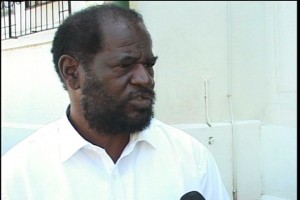Cane farmers back in court to change Sugar Industry Act

Hubert Elrington
After numerous trips to the courts, the United Cane Farmers Association was officially recognized on December twenty-fourth, 2009 when it signed an agreement with the Sugar Industry Control Board, B.S.C.F.A., Belize Sugar Industries Limited and the Ministry of Agriculture and Fisheries. While its status is formalized, it is not the end of their struggle because the new association also wants changes made to the Sugar Industry Act, which contains provisions compelling farmers to be members of the Belize Sugar Cane Farmers Association. UCFA is also fighting an assessment tax called cess, which the UCFA wants to be paid directly to the Belize Sugar Industries instead of the B.S.C.F.A. Both sides have had enough of ongoing litigation and asked the courts today for a decision. Justice Oswell Legall explained that he was giving the government time to come up with a solution, but notwithstanding the courts agreed to hand down a ruling at its next hearing.
Hubert Elrington, Attorney for United Cane Farmers
“Well, today senior counsel Michael Young, representing the Sugar Industry, the BSI, the factory asked the court to make a decision. No more adjournments, no more delay, no more anything; just make a decision and the court has agreed to that. They say it’s long enough and that’s where it stands now. There is going to be a hearing on March the second and on that date, either the government comes up with something which the parties would agree is satisfactory or the judge will hear the issue and will decide it. Our application will be granted; I’m positive of that in relation to associations. I’m a little less positive in relation to the application for cess; even though I’m not positive, I’m quite confident that we’re going to win on the cess issue too and that the law will be declared unconstitutional on both those issues.”
Delahnie Bain
“So then there would have to be an amendment to the law?”
Hubert Elrington
“Yeah, to my way of thinking there would have to repeal the whole law. The whole act will have to go and a new act would have to be put it in its place because these changes would be so radical that I don’t think the act would be able to survive.”
Elrington says, the government wanted six weeks to come up with a solution and with the next hearing scheduled for March, there is more than enough time.
